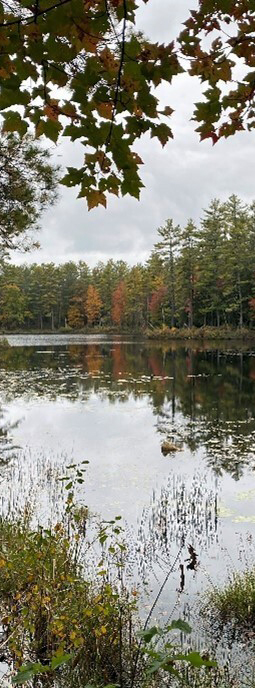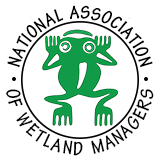 The Clean Water Act (CWA) is the primary federal statute addressing water pollution. The CWA comprehensively regulates discharges of pollutants into waters of the United States from discrete conveyances such as a pipe or vessel, with a goal to “restore and maintain the chemical, physical, and biological integrity of the nation’s waters,"1 while preserving authority of the states to plan the development, use, and protection of water resources.2
The Clean Water Act (CWA) is the primary federal statute addressing water pollution. The CWA comprehensively regulates discharges of pollutants into waters of the United States from discrete conveyances such as a pipe or vessel, with a goal to “restore and maintain the chemical, physical, and biological integrity of the nation’s waters,"1 while preserving authority of the states to plan the development, use, and protection of water resources.2
The CWA adopts a “cooperative federalism” approach to implementation, which relies on a partnership between the states, tribes, and the federal government to achieve water quality goals. CWA Section 401 water quality certification is one of the CWA programs that most clearly reflects this principle of cooperative federalism. Section 401 gives states and tribes with “treatment as a state” (TAS) status the authority to review, condition, or veto federal permits and licenses that may result in a discharge to waters of the U.S. (WOTUS). As such, section 401 can be a hugely important tool for protecting state and tribal water quality. Read CWA section 401.
Overview of Section 401 Certification. Under section 401, a federal agency may not issue a license or permit that may result in a discharge into waters of the United States (WOTUS), unless a state or tribe with TAS either grant a certification or waive its opportunity to certify. A section 401 certification indicates the licensed or permitted project will be consistent with certain CWA programs, such as water quality standards and effluent guidelines, as well as with other appropriate provisions of state (or tribal) law. States and tribes with TAS can choose to grant a certification with or without conditions, deny certification, or waive. A certification’s conditions must become a term of the license or permit.
CWA section 401 is a direct grant of authority to states (and tribes with TAS) and provides that the certifying authority has a “reasonable period of time” up to one year to act on a certification request.3 Note that the statute does not guarantee a year to analyze the request but indicates the reasonable period cannot be longer than a year. To avoid inadvertently waiving 401 certification, a state or tribal certifying authority should verify what is the “reasonable period” applicable to the requested certification.
Licenses or Permits Subject to Section 401. The CWA does not provide a list of all federal licenses and permits subject to section 401 certification, instead indicating that affected federal licenses and permits are those that may result in a discharge to WOTUS. Some of the types of federal licenses and permits having these characteristics and thus subject to section 401 certification include Rivers and Harbors Act section 10 permits and CWA section 404 permits issued by the Army Corps of Engineers, CWA section 402 permits issued by the Environmental Protection Agency (EPA), licenses for hydropower facilities and natural gas pipelines issued by FERC, among others.
Role of Neighboring Jurisdictions. Section 401 provides that the state or authorized tribe where the discharge would originate has certification authority.4 However, water and the pollutants it might contain do not respect political boundaries. Section 401 acknowledges that implications for water quality of a federal permit or license may extend beyond the state or tribe with certification authority, by establishing a process for those neighboring jurisdictions to voice concerns. Under section 401(a)(2), where EPA has determined that a discharge from an activity subject to certification from another jurisdiction “may affect” their water quality, the neighboring jurisdiction has an opportunity to object to issuance of the license or permit and request a public hearing. Section 401(a)(2) requires the licensing or permitting agency to condition the relevant license or permit “as may be necessary insure compliance with applicable water quality requirements,” based on the recommendations of the neighboring jurisdictions and EPA.
EPA’s Role Under Section 401. Section 401 authority is granted directly from Congress to states and tribes through the CWA. Unlike under several other CWA programs, such as water quality standards and permit program assumption, the EPA does not review and approve a state or tribal 401 certification program or review and approve section 401 certification actions. Nonetheless, section 401 establishes specific responsibilities for EPA, including (1) to certify on behalf of a state or tribe without 401 certification authority or where discharges would originate on lands of exclusive federal jurisdiction,5 (2) to provide an opportunity for potentially affected neighboring jurisdictions to raise concerns,6 and (3) provide technical assistance when requested.7 EPA is charged with administering all programs under the CWA,8 including section 401, and as a result views itself as generally responsible for developing section 401 regulations.
Section 401 Water Quality Certification Regulations. In 1971, EPA promulgated implementing regulations for CWA section 401. In July 2020, EPA substantially revised those regulations and established several procedures for and limitations on state and tribal certification programs. Read the 2020 section 401 certification regulations.
Courts Consider Section 401 Certification Regulations. Many states and tribes believed that EPA’s 2020 Section 401 Certification Rule narrowed section 401 in a manner inconsistent with the CWA, and that EPA did not have authority to dictate state and tribal section 401 certification processes. Several states and tribes sued EPA, arguing that the 2020 Certification Rule was inconsistent with the text of CWA section 401 and with the Act’s reliance on cooperative federalism. In October 2021, the Federal District Court for Northern California vacated and remanded the 2020 Certification Rule, reinstating the 1971 regulation. Read the court’s order. Although the district court vacated the 2020 Certification Rule, it did not address certifications or federal licenses or permits issued while the 2020 Rule was in effect. After the 2020 Certification Rule was vacated, EPA subsequently indicated it generally did not expect to revisit certifications the Agency issued while the 2020 Rule was effective.
On April 6, 2022, the Supreme Court reinstated the 2020 Certification Rule that had been vacated by the 9th Circuit Court of Appeals, pending completion of appeals. The Court's short unsigned order gave no reasons for reinstatement, which is typical when the justices act on an emergency application as was the case here. See the Supreme Court’s order reinstating the 2020 Certification Rule.
Recent Rulemaking Activity. In June 2021, EPA published a notice requesting pre-proposal comments on several section 401 certification questions. Informed by public comments submitted in response to the June 2021 notice, EPA published a proposed 401 certification rule in the Federal Register and took public comments for sixty days, or until August 8, 2022. View the proposed rule, and read NAWM's comments on the proposal.
On September 27, 2023, EPA published in the Federal Register the “Clean Water Act Section 401 Water Quality Certification Improvement Rule” that reflects public comments. The new 401 Certification Rule is effective as of November 27, 2023. Read the final rule. Many states and tribes had criticized the 2020 certification rule as placing restrictions on the scope of certification analyses that were inconsistent with the CWA, and for establishing procedural requirements for state and tribal certifying authorities that were beyond EPA’s authority under the CWA to oversee. The final rule responded to these concerns by being less prescriptive than the 2020 rule, and by leaving several substantive and procedural decisions up to the certifying authority, such as what constitutes a certification request. The new rule also provides details for how tribes may receive “treatment as a state” (TAS) authority to act as a certifying agency or have input as a neighboring jurisdiction. To see EPA materials on the new rule, including a table comparing the 1971 Rule, 2020 Rule, and the 2023 Rule, go to Final 2023 CWA Section 401 Water Quality Certification Improvement Rule | US EPA.
NAWM has been actively tracking events involving section 401 water quality certification and will update this page as new developments occur.
![]()
1 CWA §101(a).
2 CWA §101(b).
3 CWA 401(a).
4 CWA §401(a)(1).
5 CWA §401(a)(1).
6 CWA §401(a)(2).
7 CWA §401(b).
8 CWA §101(d).
